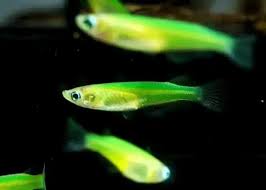
Throughout the history of Imperial China, spiritual beliefs and deities held an indispensable role in shaping the governance and societal order. For the emperors, their divine authority was rooted not only in political power but also in their deep spiritual connection to the gods, ancestors, and the cosmos. One of the most profound manifestations of this belief was the practice of deifying and honoring gods through a variety of royal rituals. The royal family, with the emperor as the highest spiritual figure in the land, conducted these ceremonies to maintain harmony, prosperity, and stability within the empire.
In this article, we will delve into the role of deities and the sacred rituals of worship that were observed in the imperial court. From the offerings to the gods to the complex ceremonies held to maintain the balance of the universe, we will explore how these practices shaped the political, social, and spiritual fabric of China’s imperial system. We will also examine the key deities that were honored, the religious philosophies underlying these practices, and the cultural significance of royal ceremonies in the imperial palaces.
1. The Role of Deities in Imperial China
In the imperial court of China, the emperor was not only the ruler of his people but also the Son of Heaven (天子, Tiānzǐ), a title which carried deep spiritual significance. This title positioned the emperor as the direct link between heaven and earth, a divine intermediary whose duties included ensuring harmony and cosmic order. The Chinese imperial system was based on the belief that the emperor’s right to rule was granted by heaven, and his power was sustained through divine favor.
Deities in Imperial China were viewed as powerful beings with authority over various aspects of the universe. From the Heavenly Emperor (Tiāndì, 天帝), who represented the supreme god in the Taoist pantheon, to earth gods and deities associated with agriculture, war, and prosperity, the emperor’s spiritual duties involved a deep respect and reverence for these forces. Worshiping and honoring these deities were essential in maintaining the celestial balance, ensuring that peace and prosperity reigned in the empire.
2. The Emperor’s Role as the High Priest of the Empire
As the emperor’s divine connection to the gods was integral to his role as the ruler, he also served as the chief priest in the country’s religious ceremonies. The emperor’s primary duty was to conduct rituals that not only appeased the gods but also reinforced his legitimacy as the Son of Heaven. As part of his responsibilities, the emperor would conduct elaborate ceremonies at various temples and shrines, offering sacrifices, prayers, and incense to the deities. These rituals were performed to guarantee the prosperity of the state, secure the emperor’s rule, and ensure cosmic harmony.
Among the most important sites for these rituals was the Temple of Heaven (Tiāntán, 天坛) in Beijing, a vast ceremonial complex used by the emperor for annual rites of prayer to the heavens. The most significant of these rituals was the Heavenly Sacrifice (祭天), which took place during the Winter Solstice. The emperor, dressed in ceremonial robes, would pray for a good harvest, the well-being of the people, and the continued favor of the gods. The ritual was believed to bring divine blessings upon the empire, reinforcing the emperor’s role as the earthly representative of celestial authority.
Additionally, the emperor’s role as the chief priest extended to the worship of local gods and deities that were associated with agriculture, the weather, and natural forces. Rituals held at the sacred shrines in the imperial palace and throughout the empire often included offerings of food, silk, jade, and other precious items as tokens of respect and gratitude.
3. Royal Rituals of Honor and Offerings to the Gods
The honor and worship of gods were deeply intertwined with Chinese imperial rituals. These ceremonies were elaborate and formal, often involving the participation of high-ranking officials, priests, and members of the royal family. Sacrificial rites were a central component of these rituals, where the emperor would offer animals such as sheep, pigs, and horses, as well as grains, fruits, and incense. The purpose of these offerings was to show humility and reverence to the gods, seeking their blessings for peace, prosperity, and good fortune.
Ancestral worship was also a critical aspect of these rituals. The emperors were expected to honor not only the celestial gods but also their royal ancestors. In this sense, the emperor would invoke the favor of both the ancestral spirits and divine deities. Offerings would often include incense, food, and symbolic items such as ceremonial vessels and precious artifacts, which would be presented at specific altars within the palace.
The rituals conducted by the emperor also reflected the Confucian moral order, where propriety, respect, and humility were emphasized. The emperor, as a representative of divine will, was not only seen as a ruler of the people but as an agent of heaven’s moral authority. His observance of these sacred rituals set an example for the citizens of the empire, reinforcing social and moral hierarchies within Chinese society.
4. The Worship of Key Deities in the Imperial Court
In the imperial court, several deities held a special place due to their significance in Chinese cosmology, politics, and agriculture. Among these, the most revered deities were the Heavenly Emperor, Earth God, God of War, and Gods of Agriculture.
- The Heavenly Emperor (Tiāndì): The supreme deity in Taoism, Tiāndì was considered the highest spiritual force in the universe, governing the heavens, the earth, and all living beings. The emperor’s relationship with Tiāndì was central to his legitimacy. Rituals in the Temple of Heaven were specifically dedicated to this deity, with the emperor praying for the well-being of his people and the empire.
- The Earth God (Dìdì): The Earth God was responsible for the earth’s fertility and the success of harvests. The emperor would conduct rituals to honor the Earth God, ensuring that the land would provide for the people and that the empire would remain prosperous.
- God of War (Wǔdì): In times of conflict or military campaigns, the emperor would honor the God of War, often associated with Guan Yu, a legendary general worshipped for his loyalty and bravery. In these rituals, the emperor sought divine favor for victory in battle and the protection of his soldiers.
- Gods of Agriculture: As agriculture was the backbone of the Chinese economy, deities associated with agriculture were among the most important in the imperial court. The emperor would conduct annual rituals to honor these gods, praying for a bountiful harvest and for the welfare of the nation’s farmers.
5. Taoist and Confucian Influences on Royal Rituals
The religious practices in the imperial court were deeply influenced by both Taoism and Confucianism. While Taoism emphasized harmony with nature, the cosmos, and the divine, Confucianism focused on moral order, filial piety, and respect for authority. The blending of these philosophies shaped the conduct of imperial rituals, where both the natural world and human relationships were given equal importance.
- Taoist Rituals: Taoist rituals in the imperial court often focused on maintaining cosmic balance, with ceremonies held at temples dedicated to Taoist deities. These rites were designed to promote peace, prevent disasters, and ensure harmony between the heavens and earth.
- Confucian Rituals: Confucianism emphasized respect for ancestors, filial piety, and moral integrity. The emperor, as the ruler of the empire, was seen as the model of these virtues. His participation in Confucian rituals, particularly those related to ancestor worship, reinforced his role as the moral leader of the people.
Together, Taoist and Confucian philosophies informed the conduct of the emperor’s daily life and sacred rituals, merging the belief in celestial forces with the moral and social order that governed the empire.
6. Festivals and Ceremonial Occasions for Honoring the Gods
In addition to regular rituals, there were specific festivals and ceremonial occasions dedicated to honoring the gods. The Spring Festival (Chūnjié, 春节) and Mid-Autumn Festival (Zhōngqiū Jié, 中秋节) were two major events where deities were honored. During these times, the emperor would host grand feasts and ceremonies, paying homage to the gods in a display of national unity and spiritual devotion.
- Spring Festival (Chūnjié): During the Spring Festival, the emperor would conduct rituals to honor the deities associated with agriculture and prosperity. These rituals were intended to ensure a successful planting season, a bountiful harvest, and overall well-being for the people.
- Mid-Autumn Festival (Zhōngqiū Jié): This festival, associated with the moon goddess, was a time for the emperor to honor the celestial powers. Rituals were performed to celebrate the harvest and to thank the deities for their blessings.
7. The Decline of Imperial Rituals with the Fall of the Qing Dynasty
With the fall of the Qing Dynasty in 1912 and the rise of the Republic of China, the role of deities and the associated royal rituals underwent a significant change. The emperor’s position as the Son of Heaven was abolished, and with it, the spiritual practices tied to the imperial court were largely discontinued.
While these rituals no longer held the same significance, they remain an important part of China’s cultural heritage. Many of the sacred temples, altars, and shrines built to honor the deities in the imperial era
still stand today, preserving the rich spiritual traditions that once guided the ruling dynasties of China.
Conclusion
The rituals for honoring deities in the imperial court were more than mere ceremonial acts; they were foundational to the belief system that underpinned China’s imperial rule. The emperor’s divine authority, sustained through his role as the high priest, shaped the empire’s prosperity, stability, and spiritual harmony. Whether through offerings to the gods, sacrifices at sacred sites, or the observance of ancient traditions, the royal rituals played a crucial role in ensuring the empire’s well-being and the legitimacy of its rulers.
Today, the remnants of these ancient practices continue to be celebrated in various cultural events and religious ceremonies, offering a lasting testament to the power of spiritual belief in China’s imperial history.









